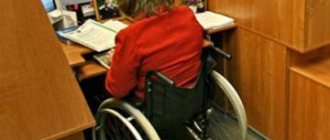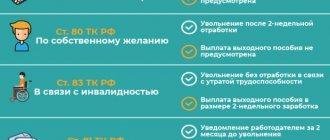How parking rules for disabled people are changing from July 1, 2021
On July 1, the updated version of the Law “On Social Protection of Persons with Disabilities” comes into force. As part of the upcoming changes, Prime Minister Mikhail Mishustin signed decree number 115 “On the procedure for extending the norms of part nine of Article 15 of the Federal Law “On Social Protection of Disabled Persons in the Russian Federation” to citizens of group III disabilities.
Project text: www.consultant.ru
The resolution clarifies that citizens with disability group III can use spaces for disabled people in public parking lots (remember that they must be allocated in an amount of at least 10% for vehicles driven by disabled people) in cases where:
citizens with disabilities of the third group have limitations in the ability to move independently, regardless of the degree of severity: 1, 2 or 3 degrees;
as well as citizens who, before the entry into force of this resolution, received an identification badge “Disabled” from the federal institution of medical and social examination for individual use and enjoy the right to free use of parking spaces for vehicles.”
photo: flickr.com
What do the changes mean? Let's take a quick look at them in an impromptu Q&A.
How to get benefits in 2021
In order for rights and benefits to be realized, a citizen is first of all obliged to confirm his status as a disabled person. For this purpose, a special commission is held in a medical institution, based on the results of which a corresponding certificate is issued.
This is exactly what needs to be provided to a working disabled person:
- at the place of work;
- to the Department of Social Protection of the Population;
- another body providing benefits.
The employer is obliged to take into account the certificate according to which the employee is classified as a disabled citizen, and, taking it into account, draw up an additional agreement to the employment contract or a new employment contract. In addition, based on the certificate, the employer undertakes to organize decent working conditions for the employee.
An employer does not have the right to assign an employee with disabilities to night shifts unless the latter has expressed his consent to this in writing, or when this is contrary to medical indications. On weekends and overtime, a disabled employee also has the right not to work on completely legal grounds.
It is noteworthy that the legislation of the Russian Federation provides for special quotas for places for citizens with disabilities.
The size of quotas is established by regional legislation.
So, if an organization or enterprise employs more than 100 people, then the quota is subject to implementation; the average number of jobs for disabled people is set from 2% to 4%. If the company employs less than 100 people, then hiring a disabled person remains the right of the employer, and not an obligation.
If there is no quota, a management representative has the right to refuse employment on legal grounds. If the employer has not exercised his right to a quota, if it exists, then he is obliged to pay the appropriate taxes and fees to the state. Exceptions are enterprises with harmful or dangerous working conditions.
A disabled person who is not hired by an organization that has a quota has the right to go to court without paying a state fee.
How does a discounted parking permit for a disabled person work?
Parking permits for disabled people give the right to free parking around the clock only in places marked with a special sign and markings.
see also
A new procedure for issuing a “Disabled” sign for free parking comes into force
. We repeat that from July 1 of this year they will be able to be used by disabled people of groups I and II, as well as disabled people of group III if they have limitations in their ability to move independently.
Who is considered disabled group 1?
Disability of category 1 is considered the most severe. The assignment of a disability group occurs when visiting the ITU. Often this category is established for life.
This means that there is no need to constantly undergo re-examination to confirm the presence of a disability. The reason for assigning this category is an oncological disease, paralysis resulting from a stroke.
In addition, group 1 is prescribed to those who suffer from severe schizophrenia or dementia. The government of the country has developed a complete list of diseases, the owners of which are classified as disabled people of category 1. It is important to take into account that this group can only be assigned to those who do not have the ability to fully care for themselves. That is, the person constantly needs outside help.
An indication for the appointment of this category is also the fact that a person cannot navigate the terrain correctly and fully communicate with those around him. Even if one of these criteria is present, we can talk about disability.
For example, if a person has physical health, but the mental side is impaired. In such a situation, a citizen will not be able to work in the intellectual sphere, however, cleaning premises or packaging goods is quite acceptable. This indicates the possibility of engaging in simple manual labor.
The situation is different when a citizen’s limbs are amputated. Then the face lost the ability to move, but mental abilities were not affected. Such a disabled person will be able to work at home or in an office.
From July 1, the “Disabled” car sign will be abolished
photo: flickr.com
First of all, it should be noted that from July 1, 2021, the order of the Ministry of Labor of Russia (Ministry of Labor and Social Protection of the Russian Federation) dated July 4, 2021 No. 443n. It is being replaced by a new order No. 724 “On approval of the Procedure for placing in the Federal Register of Disabled Persons information about a vehicle driven by a disabled person...”
In accordance with the new order, from July 1, it is intended to introduce a new approach to the legal registration of cars driven or used for transporting disabled people/children of disabled people.
As you know, Order N 443n dated September 4, 2021 introduced individual identification marks “Disabled”, which can be obtained through the Social Insurance Fund.
According to Order No. 724, the individual sign “Disabled” in 2021 will not need to be issued (the sign for individual use is cancelled). Instead of individual signs, all data about the vehicle used will be stored in the “Federal Register of Disabled Persons” . The register, accordingly, will be online, and all necessary actions will be carried out there.
The update will clearly speed up the process of obtaining all the necessary benefits, and will also not allow fraudsters or immoral violators to hide behind a sign to park their car in cities overloaded with cars.
Working conditions
The legislation reflects general standards that must be taken as a basis if a disabled person of group 1 is involved in work. These include:
- when calculating the work week, 35 hours are taken into account, while for other workers 40 hours are intended (in these conditions, a disabled person receives payment for 40 hours);
- a citizen has the opportunity to refuse business trips;
- involvement in activities on weekends or holidays is permitted provided that the person has expressed his consent in writing;
- Paid rest time lasts 30 days, additional vacation of 60 days is also provided, but it is not subject to payment.
What information will need to be provided on the application?
When submitting an application through the multifunctional center for the provision of state and municipal services, the following must be indicated:
a) last name, first name, patronymic (if any) of the disabled person (disabled child);
b) name, series and number of the identity document of a disabled person (disabled child), date and place of issue of the specified document;
c) date and place of birth of the disabled person (disabled child);
d) insurance number of the individual personal account of a disabled person (disabled child);
e) last name, first name, patronymic (if any) of the representative;
f) name, series and number of the representative’s identity document, date and place of issue of the specified document;
g) a document confirming the authority of the representative;
h) state registration number of the vehicle;
i) make and (or) model (commercial name) of the vehicle (if they were assigned by the vehicle manufacturer).
Or, if the application is submitted electronically, only the following data will be required (the rest will be added to the application automatically):
state registration number of the vehicle;
make and (or) model (commercial name) of the vehicle (if they were assigned by the vehicle manufacturer).
Clause 7, order No. 724:
“When submitting an application through a “personal account” in the federal state information system “Federal Register of Disabled Persons” or using the federal state information system “Unified Portal of State and Municipal Services (Functions)”, information about the vehicle provided for in subparagraphs “h” is filled in electronically " and "and" clause 6 of this Procedure. Other information provided for in paragraph 6 of this Procedure is filled in automatically by the Pension Fund of the Russian Federation using the Unified Identification and Authentication System.”
Is it possible to work, get paid and not lose your dues?
According to the legislation of the Russian Federation (Article 3, 94 of the Labor Code of the Russian Federation), disabled people can work if the working conditions are not contraindicated for health reasons (are working disabled people entitled to pensions?). The second disability group is recognized as partly working .
If a disabled person is recognized as able to work, then he can be employed by creating special conditions for him. For example, there must be a specially designed workplace.
A pension due to loss of ability to work is paid to a citizen of any age. Thus, a citizen can continue to work if health and working conditions allow.
In this circumstance, the manager must pay wages in the same manner for everyone, as well as make specific payments to the Pension Fund. In the compulsory pension insurance base, accruals will be summed up throughout the year , and the employee can see them in his personal account.
All accruals will be converted into points and later used to recalculate pension payments. A disabled person does not lose his pension, he receives it in full, and this rule does not depend on the size of his salary at the workplace.
An insurance pension due to disability is awarded to citizens who have disabilities from the first to the third group. In this case, the reasons for which the disability occurred do not matter.
The pension is paid without fail, regardless of whether the citizen gets a job or not. The pension increase should occur on an individual basis, taking into account the age and amount of earnings of the working pensioner (read about the features of indexation here).
Also, the pensioner must receive accruals along with allowances , which are established in accordance with the legislation of the Russian Federation.
Reference! A labor pension is granted to disabled people of any group if they have a minimum work experience.
Thus, the inability to work and receive wages will be compensated. In this case, the citizen will have to choose which pension is more profitable for him.
Legislative regulation of the issue
Having disability group 3, a person retains the opportunity to work and enjoy social benefits with certain benefits. The category under consideration includes disabled people from labor, childhood, war, and those who received status as a result of the development of an illness.
Be that as it may, Russia has laws that provide specific rights for disabled citizens, including conditions for assigning a group. In particular, we are talking about such legislative acts as:
— Decree of the Government of the Russian Federation No. 95, which sets out the procedure and conditions for obtaining the status of “disabled person”;
— Resolution of the Ministry of Labor and Social Development No. 17, which sets out the need to carry out a medical examination designed to determine the causes of disability;
— Order of the Ministry of Health No. 317, supplementing Resolution No. 17 and explaining the procedure for conducting a medical examination;
— Explanation of the Ministry of Labor of the Russian Federation, giving an idea of the list of medical institutions available for examination;
— Federal law guaranteeing the right of disabled people to social benefits;
— Federal Law on Social Protection of Persons with Disabilities;
— Federal law that allows people with disabilities and senior citizens to get the services they need.
Benefits for disabled people of groups I, II and III (social, tax, property, etc.)
- a 50% or more discount on payment for a state or municipal apartment, payment for utilities and telephone subscription fees;
- 50% or more discount on fuel payments in houses without central heating;
- the priority right to receive a plot of land for private development, dacha farming/gardening is granted.
- exemption from payment of transport tax for disabled people who have a car that has been specially converted, or with an engine power of up to 100 hp, as well as disabled people who received a car through social protection authorities
- land tax benefits
In different subjects of the Russian Federation, additional benefits for people with disabilities may apply, for example, in Moscow, according to Decree of the Government of the Russian Federation of July 30, 1994 No. 890, in 2015 you can receive:
- free dental prosthetics;
- orthopedic shoes (free or discounted)
- free prescription drugs
- discounted medical supplies
- free travel on public transport
Does a disabled person of group 1 have the right to receive an apartment?
Article 17 of the Federal Law of July 17, 1999 N 172-FZ provides that, at the expense of federal budgetary funds, families with disabled children are provided with living quarters if they need to improve their housing situation. The procedure for provision is regulated in more detail by each constituent entity of Russia individually.
The procedure for providing apartments for persons registered after 01/01/2005. has two options:
- Obtaining an apartment under a social tenancy agreement. It is necessary to contact the authorized body at your place of residence to apply for improvement of living conditions. If the child’s disability is associated with a severe chronic disease, according to the List approved by Decree of the Government of the Russian Federation of June 16, 2006 No. 378, then the apartment will be provided out of turn.
- Obtaining an apartment under an agreement for free use. In Moscow, the size of the premises provided must be at least 18 sq.m. living space per person at the average market value, which is determined in each constituent entity of the Russian Federation separately. The application is submitted to the Department of Housing Policy and Housing Fund of Moscow.
Disability benefits
Social Services for people with disabilities are provided free of charge or at a reduced rate. The amount of payments and possible discounts is presented in the table.
| Benefit | Size |
| State fund housing discount | 50% |
| Benefit for utilities (even if the premises are not owned) | 50% |
| Payment for major repairs in an apartment building | 50% |
| Discount on fuel if there is no central heating | 50% |
| Receiving an inheritance | A disabled child is entitled to a share, even if he is not in the will. Its size is ½ of the part that could go to a person by law. |
| Transport benefits | Free travel to and from the place of treatment for the child and accompanying person. 50% discount on intercity flights. |
| Tax deduction for parents | Parent (adoptive parent) - 12 thousand rubles; Guardian - 6 thousand rubles. |
| Compensation for payments under compulsory motor liability insurance | No more than 50% of the cost |
To receive benefits, a disabled person and his representatives must contact the relevant executive bodies. The initial registration takes place at the Pension Fund (for example, care compensation, EDV).
To exercise other rights (housing, transport), you need to contact the MFC (multifunctional public service centers), the social protection authority. In addition to the standard set of documents (passports, SNILS, disability certificates, IPR), documents for an apartment, car, land plot, and an extract on the number of residents are needed. The disabled person or his representative fills out an application.
Social security will issue a certificate of entitlement to a benefit, which must be presented to the organization providing a specific service (for example, to a management company to reduce apartment payments).
To receive tax preferences, apply to the tax office.
To implement labor benefits, you need to inform the HR department at the enterprise by providing a medical report. The tax deduction is also issued through the employer.
Can disabled people drive a car?
The law does not provide any special restrictions for obtaining a driver's license. If a disabled person, regardless of category, passes a medical examination and a driving test, he will be issued a driver's license.
Questions such as whether a group 3 disabled person can work as a driver rarely arise, but with group I, there are many questions . If we return to the beginning of the article, where the definition of group I disability is indicated, we will see that it is given to people who are incapable of self-care and who constantly need outside help (supervision) from other persons.
Therefore, the question of obtaining a driver’s license for this category of disabled people, in my opinion, is rhetorical.
It is worth noting that if a disabled person has been issued a license, then, as a general rule, it cannot be deprived of it. However, there is an exception in the form of committing a number of administrative offenses:
- Driving while intoxicated;
- Repeatedly exceeding the set speed limit;
- Repeated violation of traffic rules across railway tracks;
- Repeated exit into oncoming traffic;
- Repeated movement in the opposite direction on one-way traffic;
- Violation of traffic rules or vehicle operating rules, resulting in minor or moderate harm to the health of the victim;
- Leaving the scene of an accident by the driver in which he was a participant.
Types of social protection for disabled people
Persons with disabilities have the right to a range of services provided free of charge or on a reduced basis. There are types of social assistance:
- Medical - provision of medications, medications from the established list, TSR (technical means of rehabilitation), consultations with doctors, treatment in a hospital or sanatorium-resort. At the same time, travel to the vacation spot and back is free, including for an accompanying person. Treatment and rehabilitation are possible in special centers in large cities according to a quota (Moscow, St. Petersburg, and so on). The basis for the exercise of rights is the IPR data;
- Material - involves pensions, subsidies, benefits, compensation for a disabled person and his family members. The legislation establishes tax benefits, significant discounts on housing, utilities, fuel in private homes, transportation costs, medicines and rehabilitation products;
- Creating an accessible environment - arrangement of buildings and structures, parks and other recreational places, roadways taking into account the needs of people with disabilities (presence of ramps, special sanitary facilities, sound traffic lights, information terminals, etc.);
- Assistance in education and employment - the right to study in a regular or correctional school, at home, remotely. Visiting free preschool institutions with the right to enroll without a queue. Possibility of passing the Unified State Exam, enrolling in free education at a college or university, or receiving an increased scholarship. Employment involves simplified conditions and schedule for a disabled person in a specially equipped workplace;
- Creation of optimal living conditions - priority right to housing or additional space, payment benefits, assistance in home improvement, visits from a social worker;
- Socio-cultural and psychological - helps adaptation in society, creates conditions for visiting cultural places, events, rehabilitation clubs and sections.
A larger volume of social assistance for disabled people of group 1, disabled citizens. Group 2 has a smaller amount of payments, a significant portion of patients are employed. Disabled people of group 3 have a reduced list of benefits: they are not enrolled in educational institutions without competition, are not exempt from taxes, and the purchase of medicines is reimbursed by the state by 50%.
The procedure for providing social assistance to a disabled person
To provide household assistance, a social worker is assigned to the patient, who must visit him at least 2 times a week.
The implementation of the labor rights of a disabled person is entrusted to the employer. The conditions assume:
- 35 hour week;
- Additional unpaid leave (60 days);
- Suitable workplace and position.
To improve living conditions, a disabled person is registered and assigned to the general queue.
Legal assistance in informing a disabled person about his rights, representation in court and government agencies, and paperwork is provided free of charge or at a reduced rate (50%).
At his own request, a disabled person can refuse state support and receive unused services in monetary terms.
People with disabilities must be protected by the state and society. Support measures contribute to the full or partial restoration of a disabled person’s health and a comfortable life. Social assistance for this category of citizens allows them to develop, study, work, and visit places of culture and recreation on an equal basis with healthy people.











